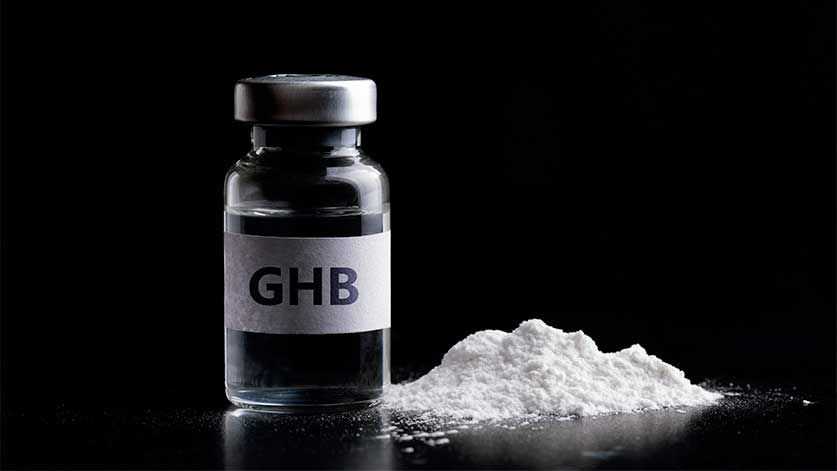GHB (Gamma Hydroxybutyric Acid) | What Is GHB?
GHB can treat narcolepsy, but it also has a high potential for drug abuse. Abusing GHB can cause side effects such as severe drowsiness, changes in libido, and drug overdose.

Gamma hydroxybutyric acid, or GHB, can cause reduced inhibitions, paranoia, loss of consciousness, extreme drowsiness, increased libido, and breathing problems.
A form of GHB is an approved prescription drug for the treatment of narcolepsy, a sleeping disorder. GHB can also be abused as an illegal weight loss supplement or recreational illegal drug.
Gamma hydroxybutyric acid is a controlled substance with a high potential for drug abuse. Abusing GHB can be harmful to your health.
GHB Medical Uses
A form of GHB, known as sodium oxybate, is available as the prescription drug Xyrem. Xyrem can be prescribed to treat narcolepsy, a sleeping disorder that can cause excessive daytime sleepiness and sudden bouts of sleep.
GHB works as a central nervous system depressant, increasing amounts of gamma aminobutyric acid, or GABA, in the brain.
GHB was formerly sold in the U.S. as a supplement for body builders. It was banned by the FDA in 1990.
GHB Illicit Uses
GHB is a target of illicit drug use. Illicit forms of GHB use include using it as a weight loss supplement, an anti-aging drug, a hair growth formula, or as a recreational drug. The use of GHB outside of its approved methods is a form of drug abuse.
Street Names
Street names for GHB include:
- Liquid Ecstasy
- Georgia Home Boy
- Grievous Bodily Harm
- Liquid X
Along with MDMA, GHB is a popular club drug for use at raves.
Date Rape Drug
In the 1990s, GHB gained notoriety as a “date rape drug.” GHB’s potential to increase libido and sexual desire, while causing sedative effects, linked the drug to instances of sexual assault.
Side Effects Of GHB
Side effects of GHB may include:
- nausea
- drowsiness
- dizziness
- impairment
- loss of consciousness
- trouble with concentration
- high blood pressure
- increased heart rate
- loss of bladder control
These adverse effects may be stronger in high doses of GHB, or if GHB is a target of substance abuse.
GHB Overdose
Higher doses of the drug may lead to a GHB overdose. GHB overdoses can cause life-threatening respiratory depression.
Signs Of GHB Addiction
GHB can be habit-forming, especially if it is taken without a prescription. Signs of GHB addiction in a loved one may include:
- changes in mood
- changing of social circles
- struggling at work or school
- talking about hallucinations or sensations only they can experience
- visible withdrawal symptoms, such as delirium and psychosis
These signs may suggest that a loved one is struggling with GHB addiction, and they may benefit from professional addiction treatment.
Treatment Options For GHB Addiction
GHB addiction treatment methods vary across locations and medical professionals. More research may be needed to establish effective addiction treatment methods for this type of drug. Medications such as benzodiazepines may be used to treat withdrawal symptoms.
However, Ohio Recovery Center offers evidence-based services that work for all addictions, including behavioral therapy, holistic care, and peer support. To learn more, please contact us today.
- Drug Enforcement Administration https://www.dea.gov/sites/default/files/2020-06/GHB-2020_0.pdf
- Food and Drug Administration https://www.accessdata.fda.gov/drugsatfda_docs/label/2018/021196s030lbl.pdf

